FXON services will be temporarily suspended due to phased system upgrades and a platform redesign. (Details here)
FXON services will be temporarily suspended due to a full platform redesign. (Details here)
- Features
-
Services/ProductsServices/ProductsServices/Products

Learn more about the retail trading conditions, platforms, and products available for trading that FXON offers as a currency broker.
You can't start without it.
Trading Platforms Trading Platforms Trading Platforms
Features and functionality comparison of MetaTrader 4/5, and correspondence table of each function by OS
Two account types to choose
Trading Account Types Trading Account Types Trading Account Types
Introducing FXON's Standard and Elite accounts.
close close

-
SupportSupportSupport

Support information for customers, including how to open an account, how to use the trading tools, and a collection of QAs from the help desk.
Recommended for beginner!
Account Opening Account Opening Account Opening
Detailed explanation of everything from how to open a real account to the deposit process.
MetaTrader4/5 User Guide MetaTrader4/5 User Guide MetaTrader4/5 User Guide
The most detailed explanation of how to install and operate MetaTrader anywhere.
FAQ FAQ FAQ
Do you have a question? All the answers are here.
Coming Soon
Glossary Glossary GlossaryGlossary of terms related to trading and investing in general, including FX, virtual currencies and CFDs.
News News News
Company and License Company and License Company and License
Sitemap Sitemap Sitemap
Contact Us Contact Us Contact Us
General, personal information and privacy inquiries.
close close

- Promotion
- Trader's Market
- Partner
-
close close
Learn more about the retail trading conditions, platforms, and products available for trading that FXON offers as a currency broker.
You can't start without it.
Features and functionality comparison of MetaTrader 4/5, and correspondence table of each function by OS
Two account types to choose
Introducing FXON's Standard and Elite accounts.
Support information for customers, including how to open an account, how to use the trading tools, and a collection of QAs from the help desk.
Recommended for beginner!
Detailed explanation of everything from how to open a real account to the deposit process.
The most detailed explanation of how to install and operate MetaTrader anywhere.
Do you have a question? All the answers are here.
Coming Soon
Glossary of terms related to trading and investing in general, including FX, virtual currencies and CFDs.
General, personal information and privacy inquiries.
Useful information for trading and market information is posted here. You can also view trader-to-trader trading performance portfolios.
Find a trading buddy!
Share trading results among traders. Share operational results and trading methods.
- Legal Documents TOP
- Client Agreement
- Risk Disclosure and Warning Notice
- Order and Execution Policy
- Complaints Procedure Policy
- AML/CFT and KYC Policy
- Privacy Policy
- eKYC Usage Policy
- Cookies Policy
- Website Access and Usage Policy
- Introducer Agreement
- Business Partner Agreement
- VPS Service Terms and Condition

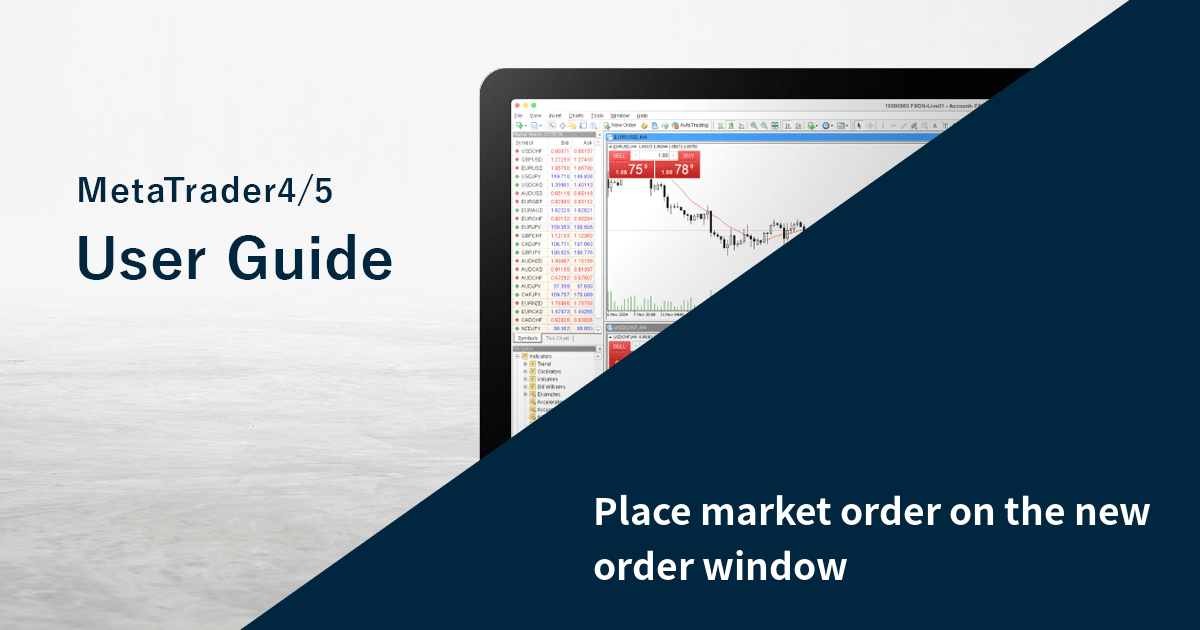
This article was :
published
updated
Unlike a limit order, you use the current market rate when placing a market order on MetaTrader4 (MT4) / MetaTrader5 (MT5). The order gets executed as soon as it reaches the market, so the order will go through faster than a limit order. There are two types of market orders: buy market orders and sell market orders. You can start with either one.
Here we'll take a look at how to place a market order on the new order window on MT4/MT5.
Switch between MT4/MT5 tabs to check the steps for each.
Step 1
Click "New Order" in the toolbar.
Related article: Open the new order window


Step 2
Click the "Symbol" field to choose the symbol to place an order for.
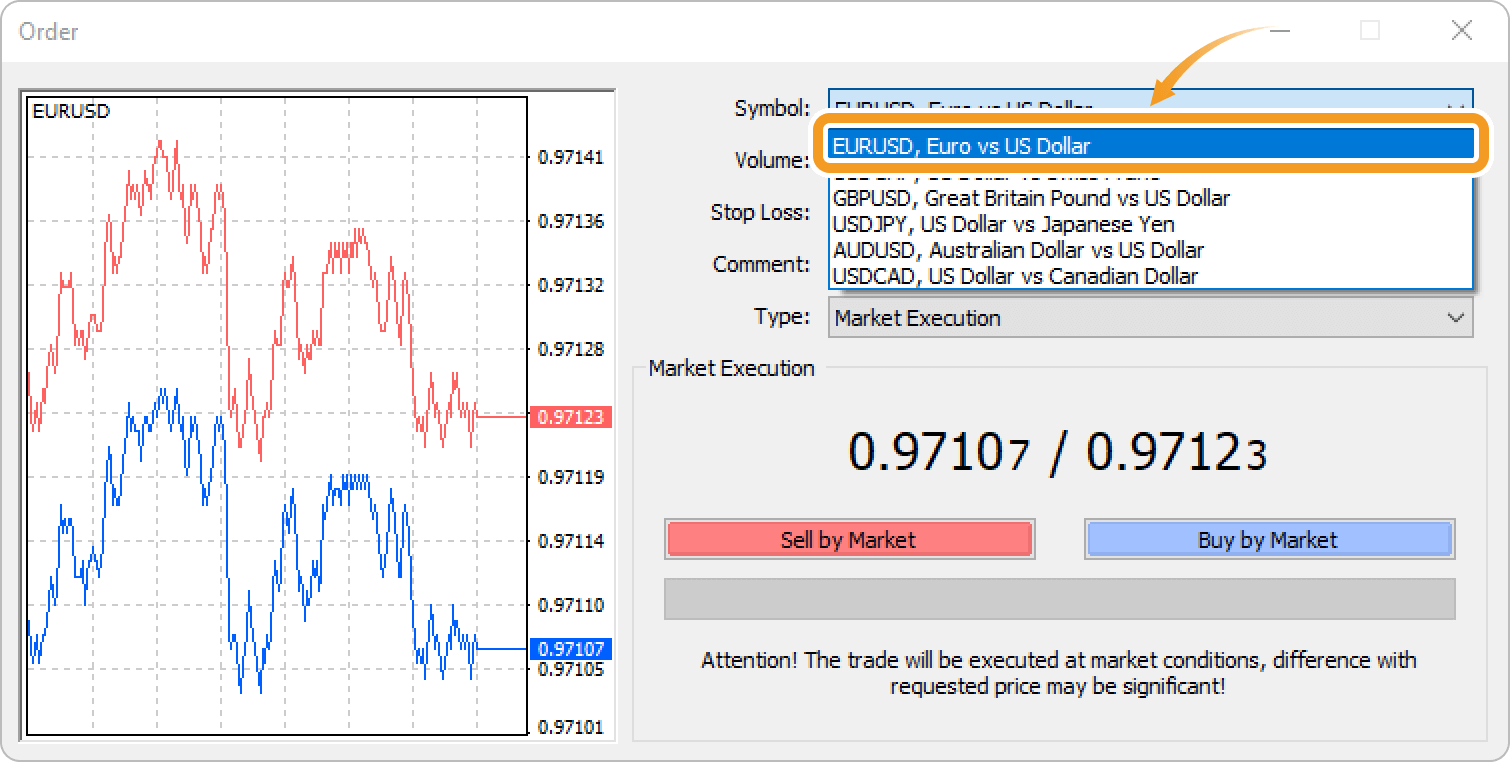
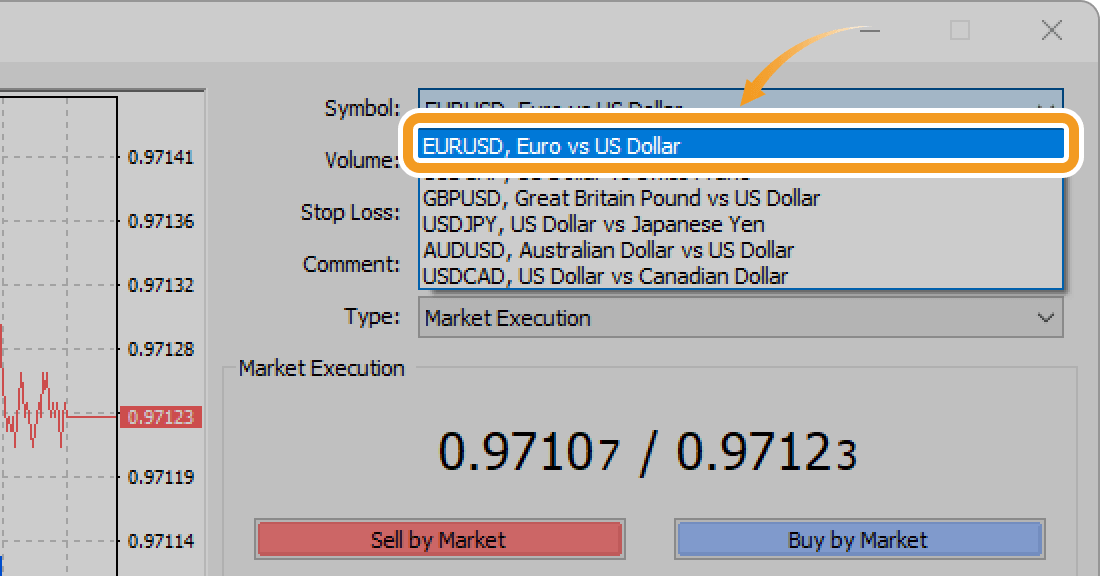
Step 3
Click the "Type" field and select "Market Execution".
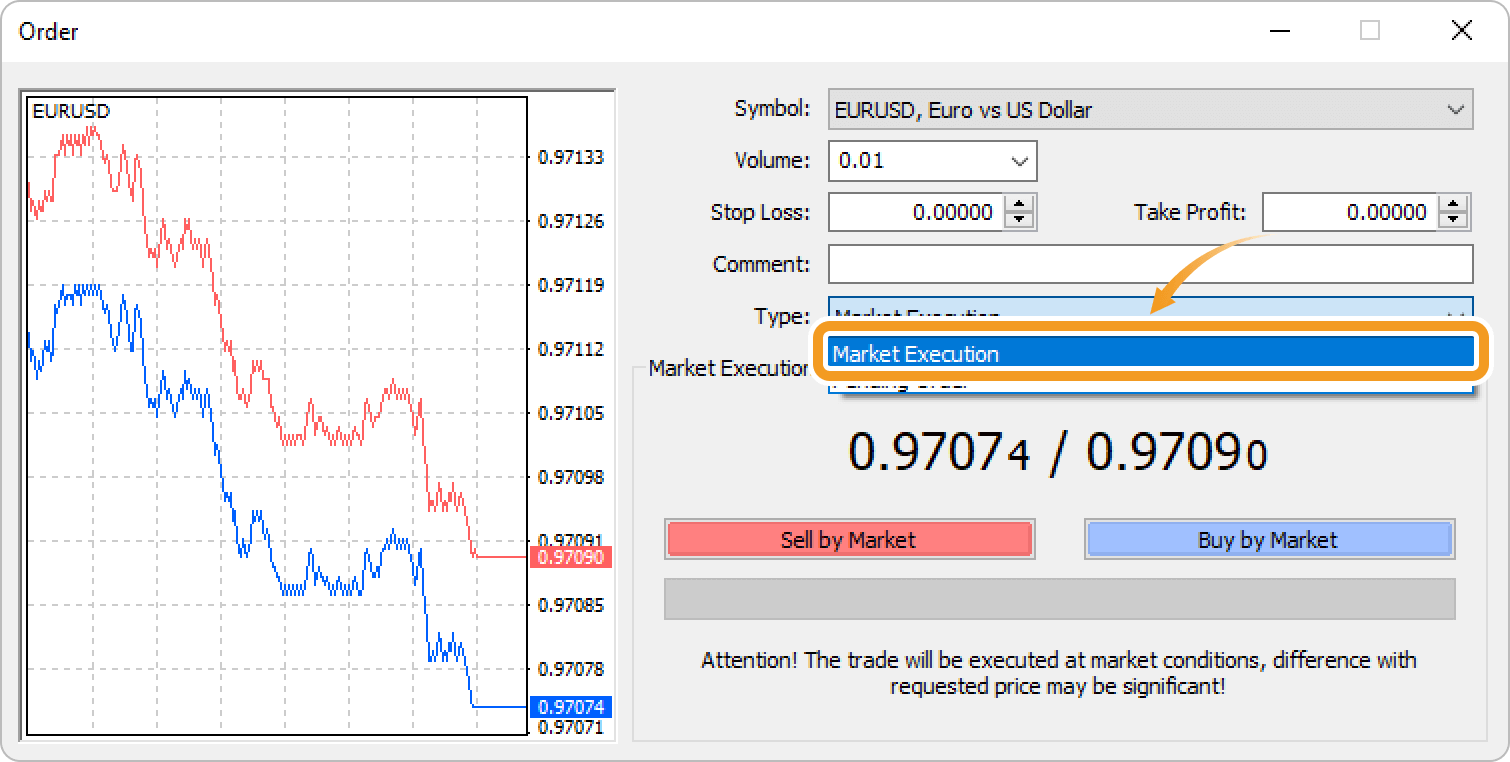

The terms in the new order window differ depending on the order types offered by brokers. If you can't find "Market Execution", select "Instant Execution" instead.
Step 4
Set the trade volume in lots in the "Volume" field. The volume per lot varies by broker's account type and symbol. Set the stop-loss (S/L), take-profit (T/P), and comment as necessary.
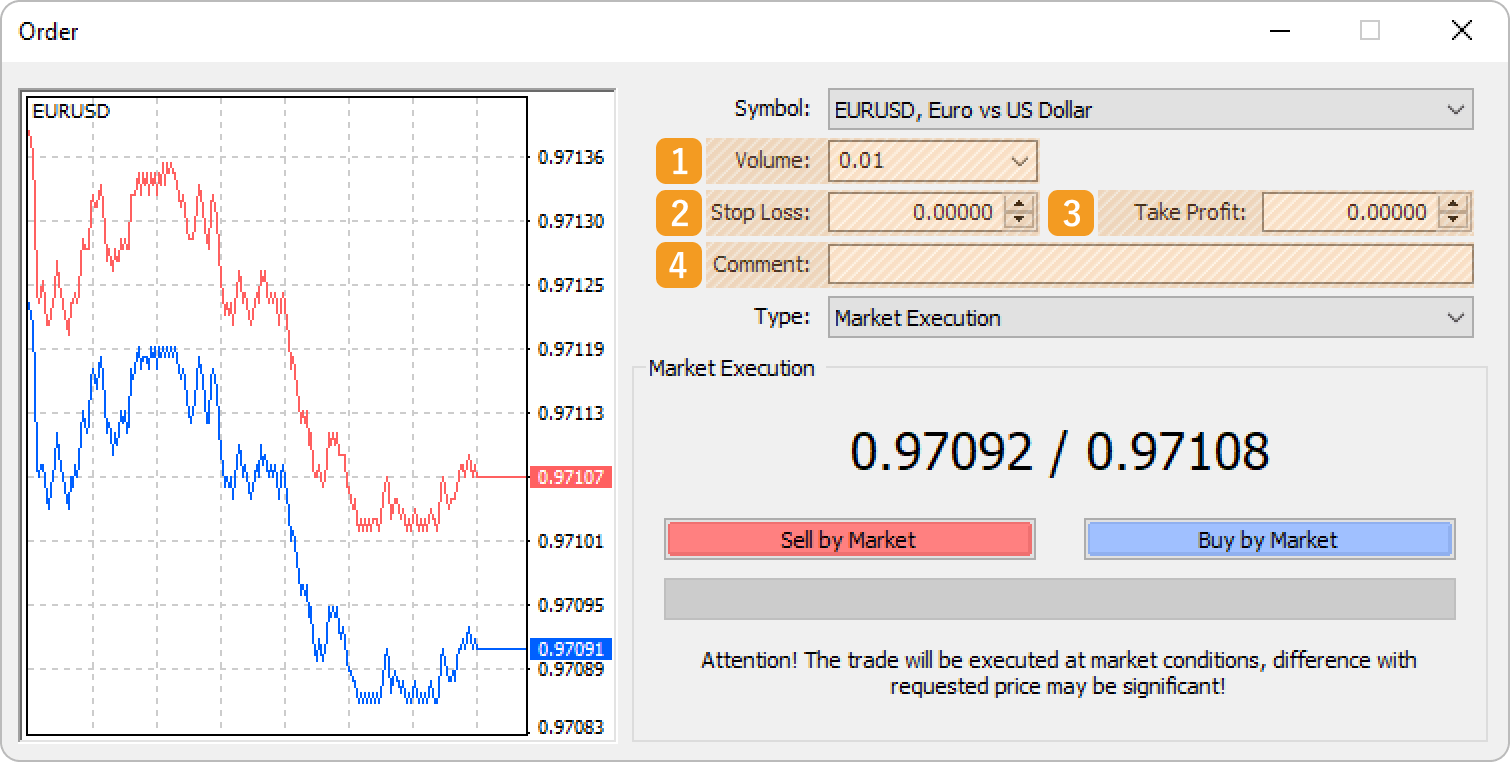
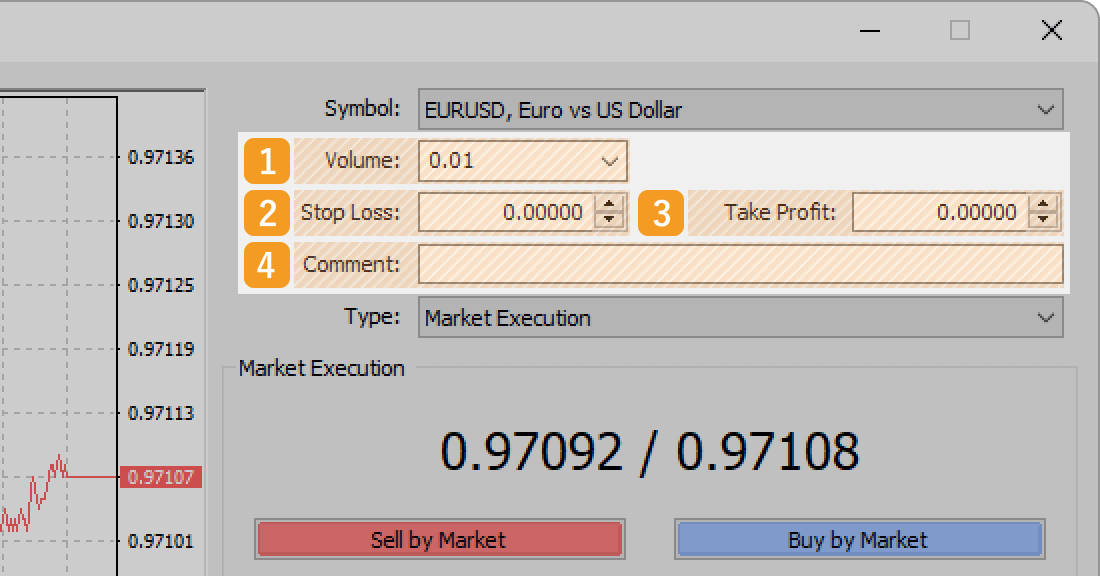
|
Number |
Item name |
Descriptions |
|---|---|---|
|
1 |
Volume |
Set the trade volume in lots. Type the volume or choose it from the pull-down menu. |
|
2 |
Stop Loss |
Set the stop-loss (S/L) value. Type the price or use the ▼▲ marks on the right side. Related article: Set or change T/P and S/L values |
|
3 |
Take Profit |
Set the take-profit (T/P) value. Type the price or use the ▼▲ marks on the right side. Related article: Set or change T/P and S/L values |
|
4 |
Comment |
You can add comments to an order. Use them as notes for later reference. |
Step 5
Check the price and click "Sell by Market" to place a market sell order or "Buy by Market" for a market buy order. The bid price will be applied for the former, and the ask price for the latter.
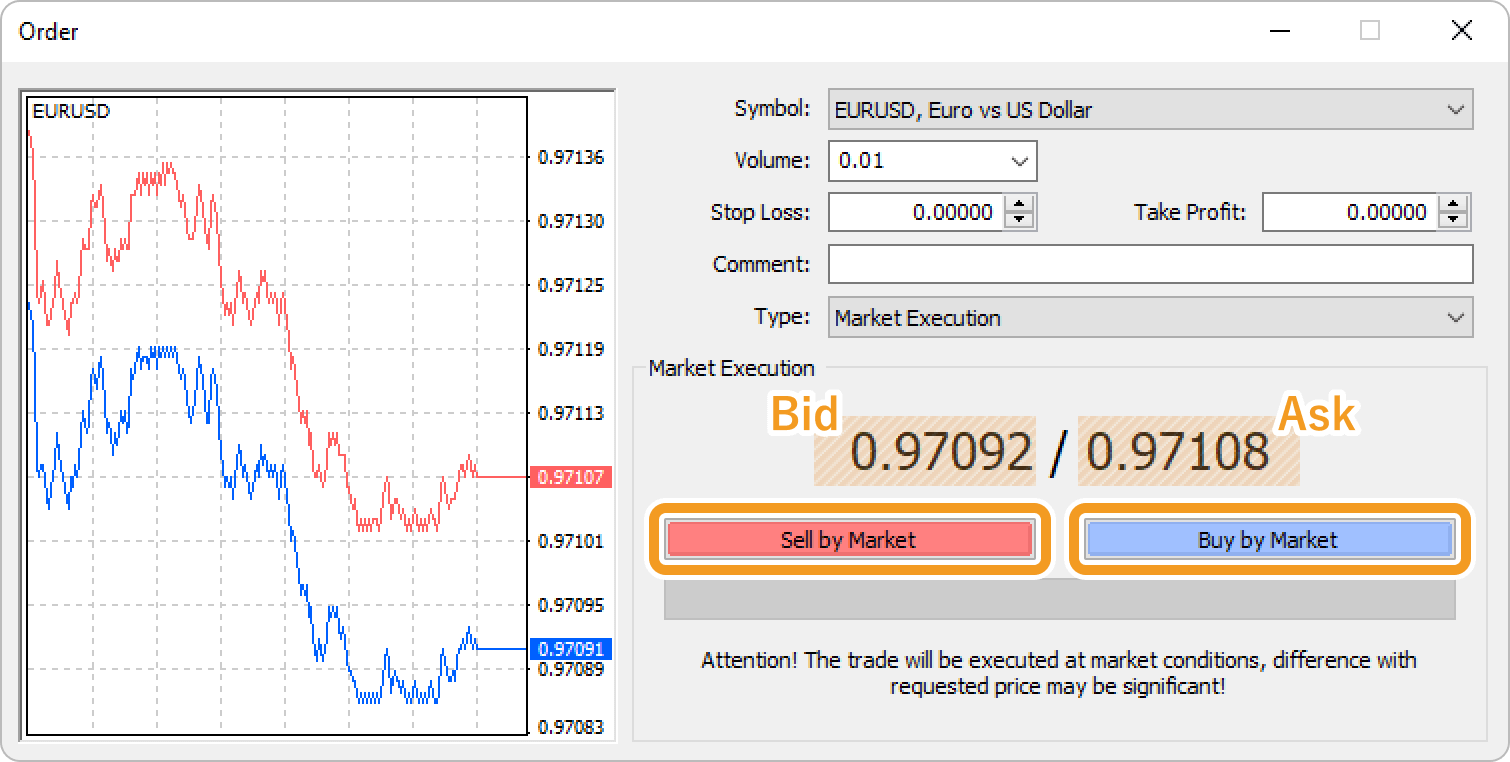
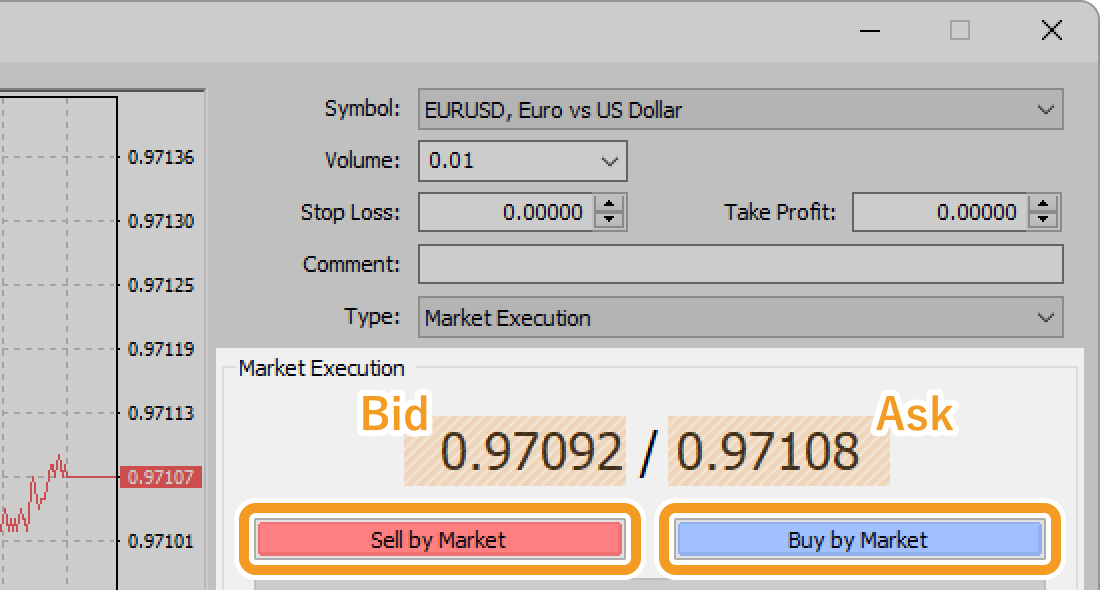
In the new order window, you can check the tick chart. A tick is the smallest unit of data that represents price. Tick charts detect smaller price changes than any other chart, which will help you execute well-timed orders. From the new order window's tick chart, you can check the Bid, Ask, take-profit (T/P), and stop-loss (S/L) values.
Step 6
Once the trade is executed, the order details will be added to the "Trade" tab of the Terminal.
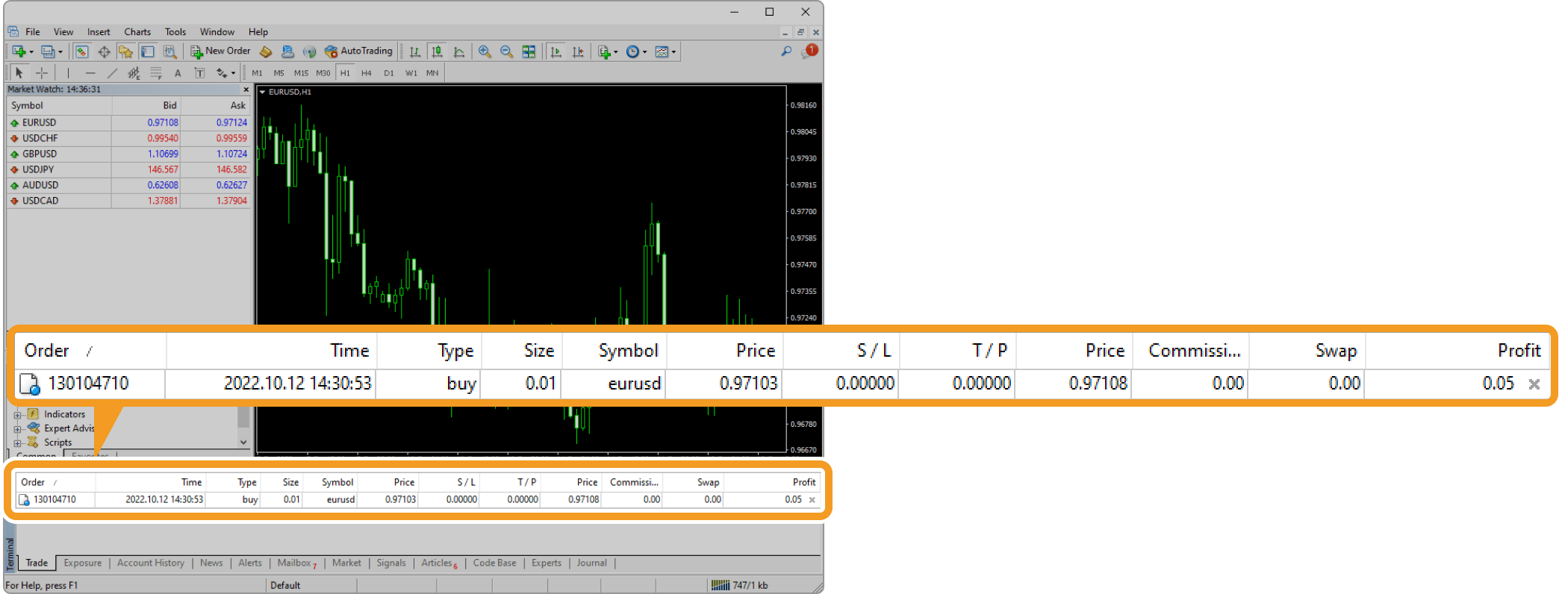
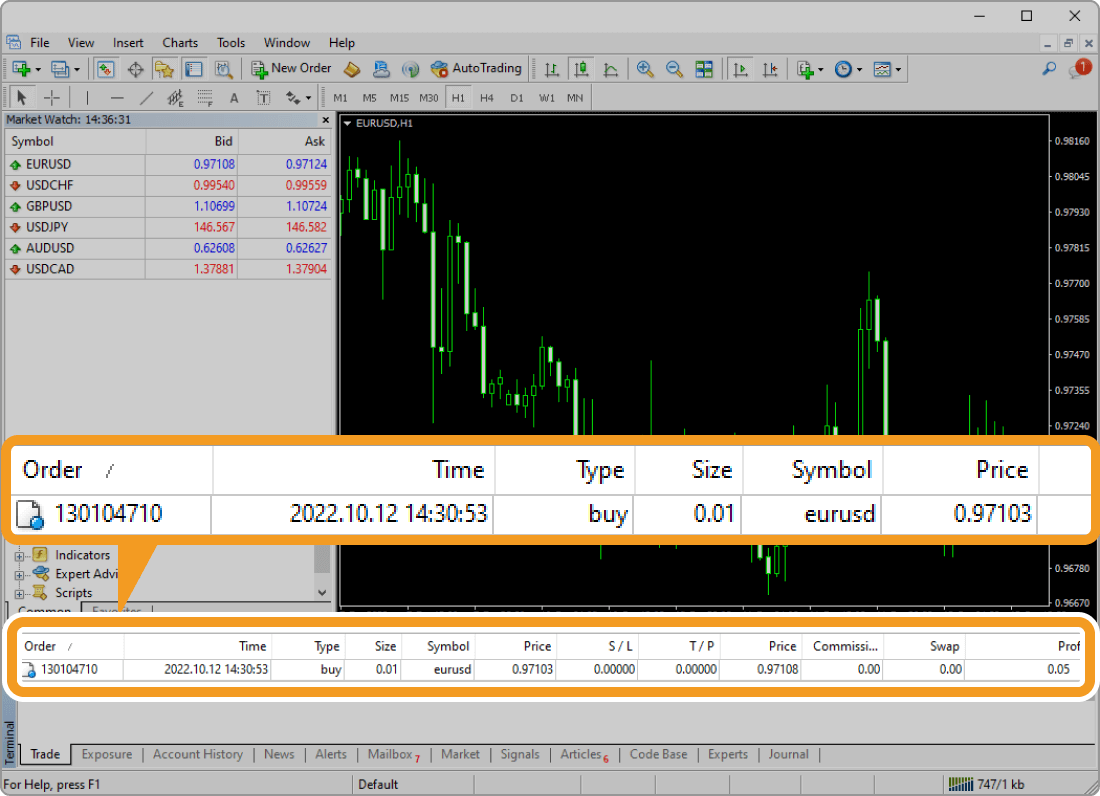
In case the Terminal is not displayed below the charts, click "View" in the menu and select "Terminal".
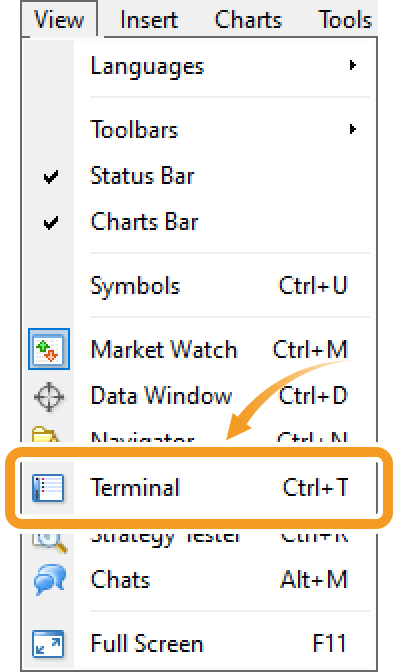
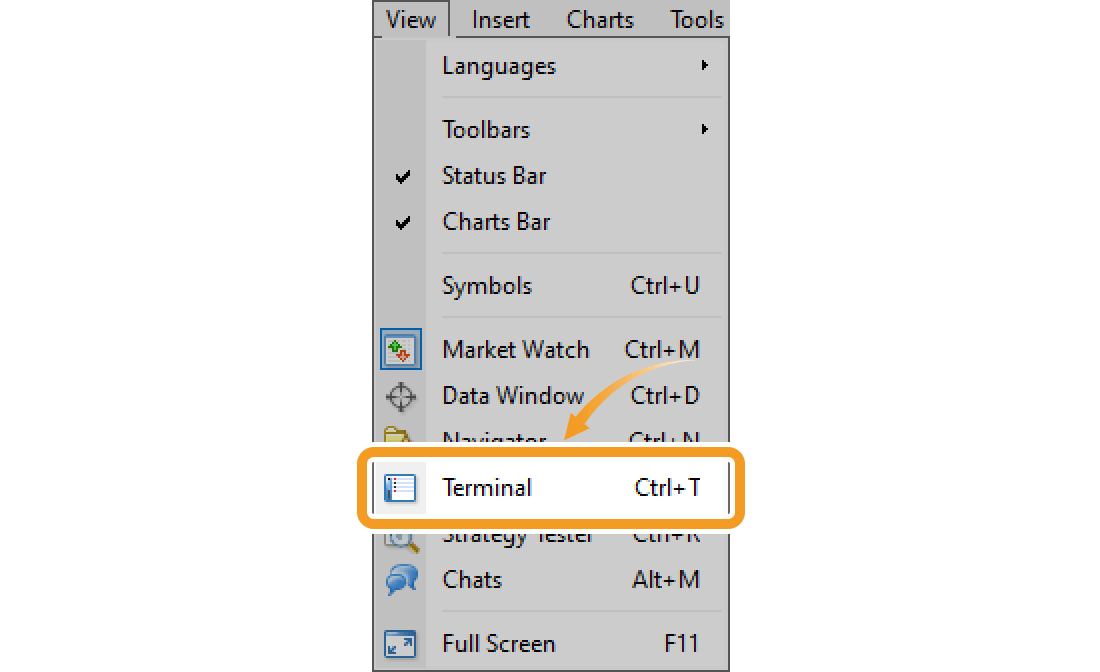
Step 1
Click "New Order" in the toolbar.
Related article: Open the new order window


Step 2
Click the "Symbol" field to choose the symbol to place an order for.
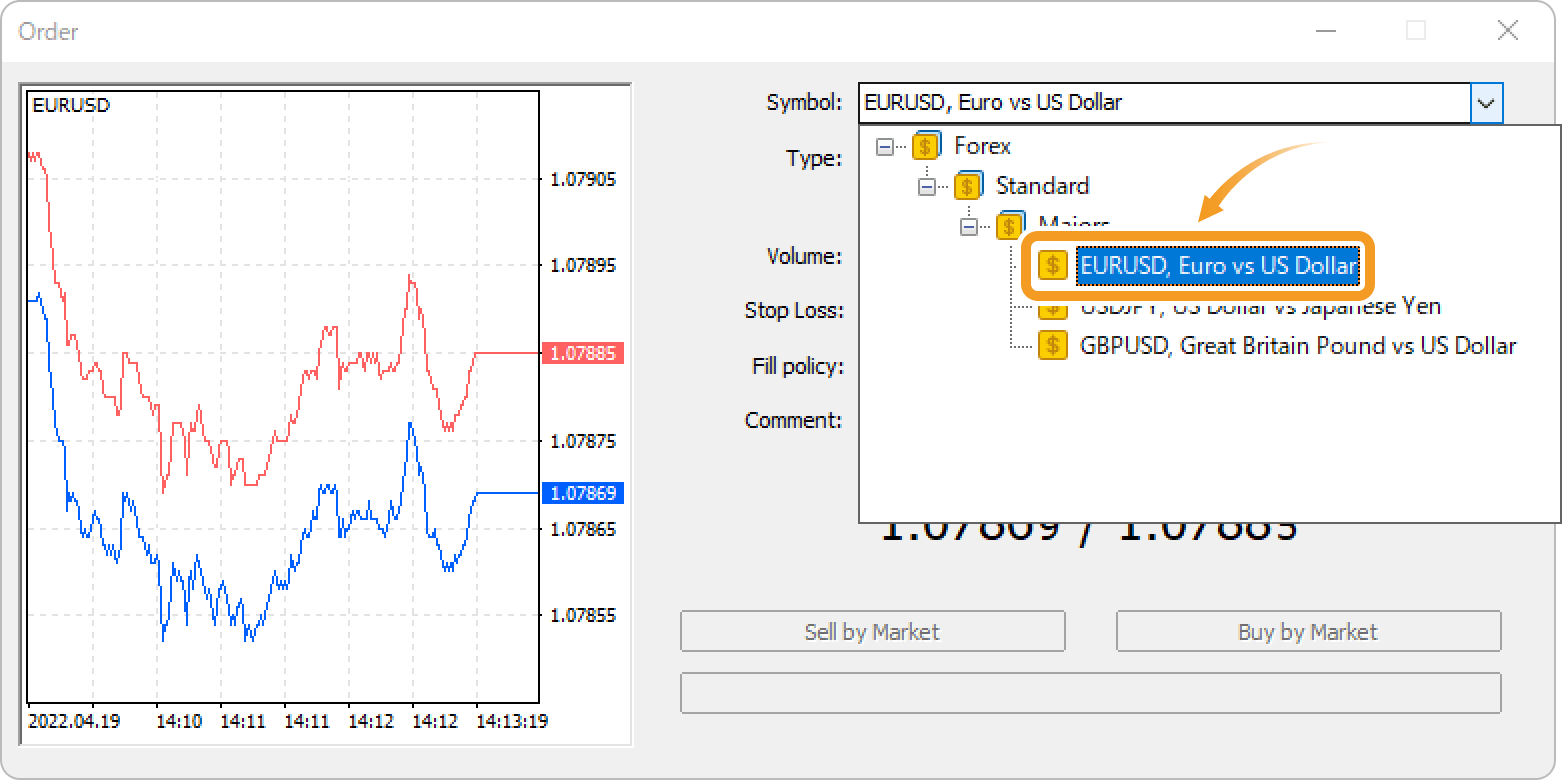
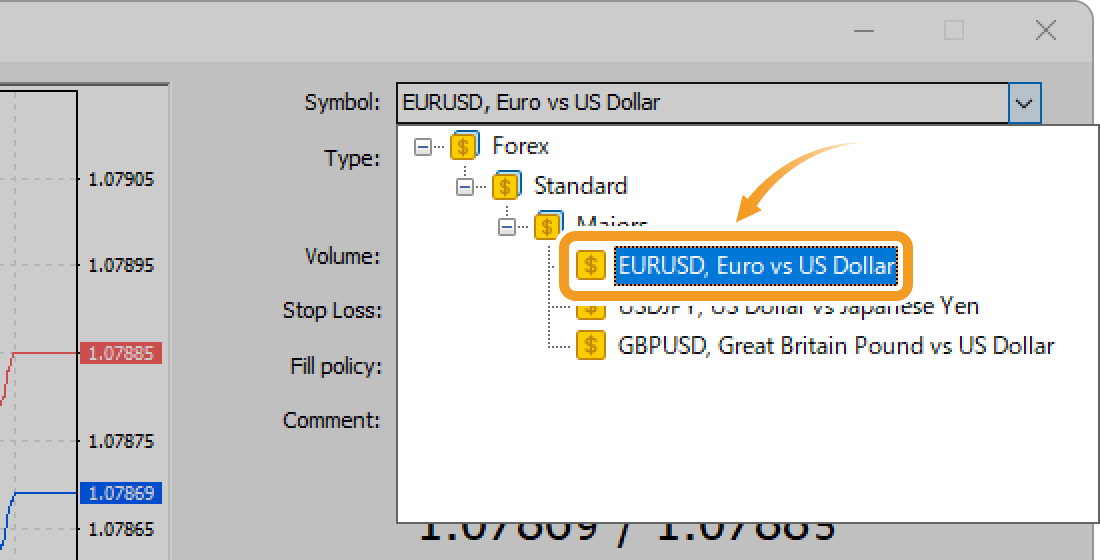
Step 3
Click the "Type" field and select "Market Execution".
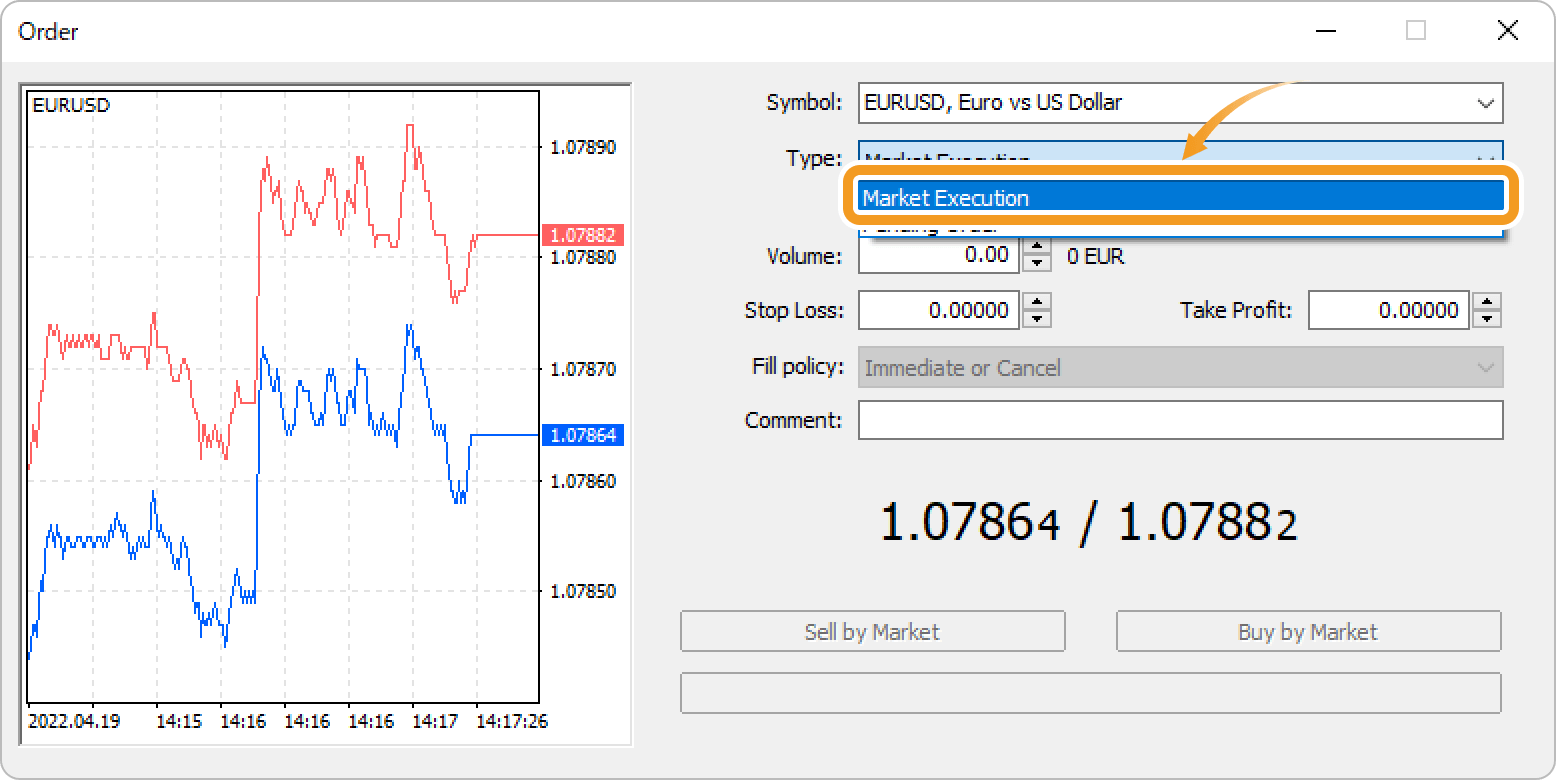
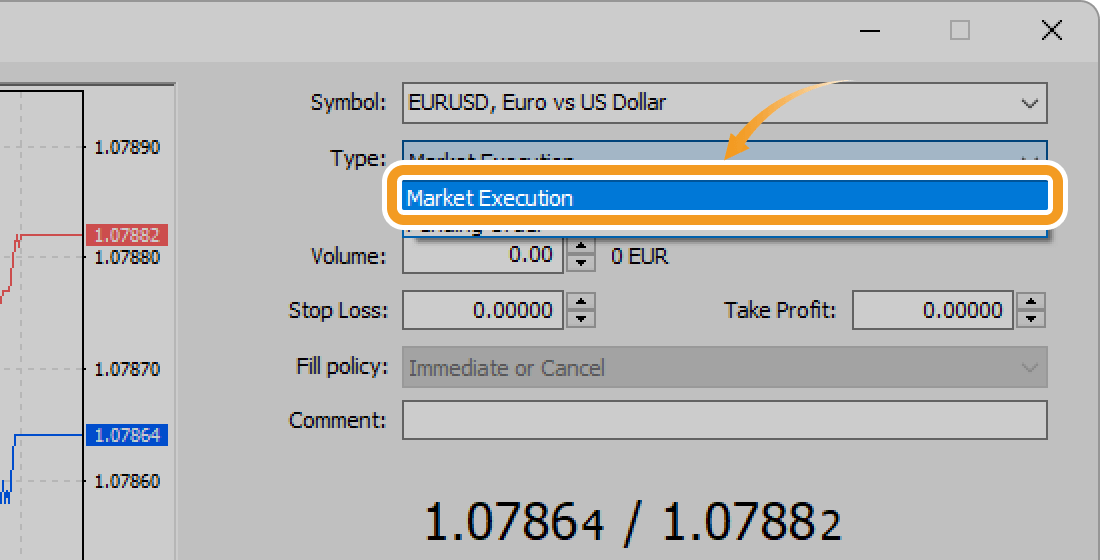

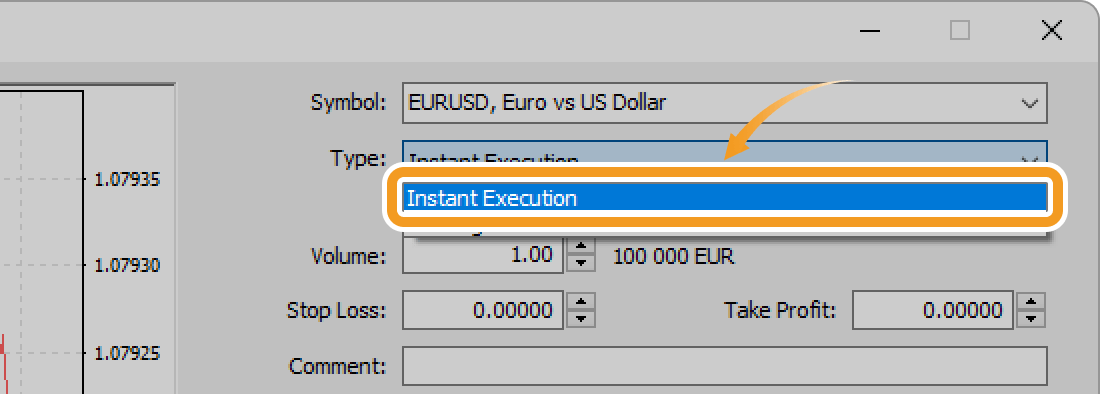
In MT5, the terms in the new order window differ depending on the order type. In the Instant Execution mode, please select "Instant Execution" instead of "Market Execution".
Step 4
Set the trade volume in lots in the "Volume" field. The volume per lot varies by broker's account type and symbol. Set the stop-loss (S/L), take-profit (T/P), and comment as necessary.
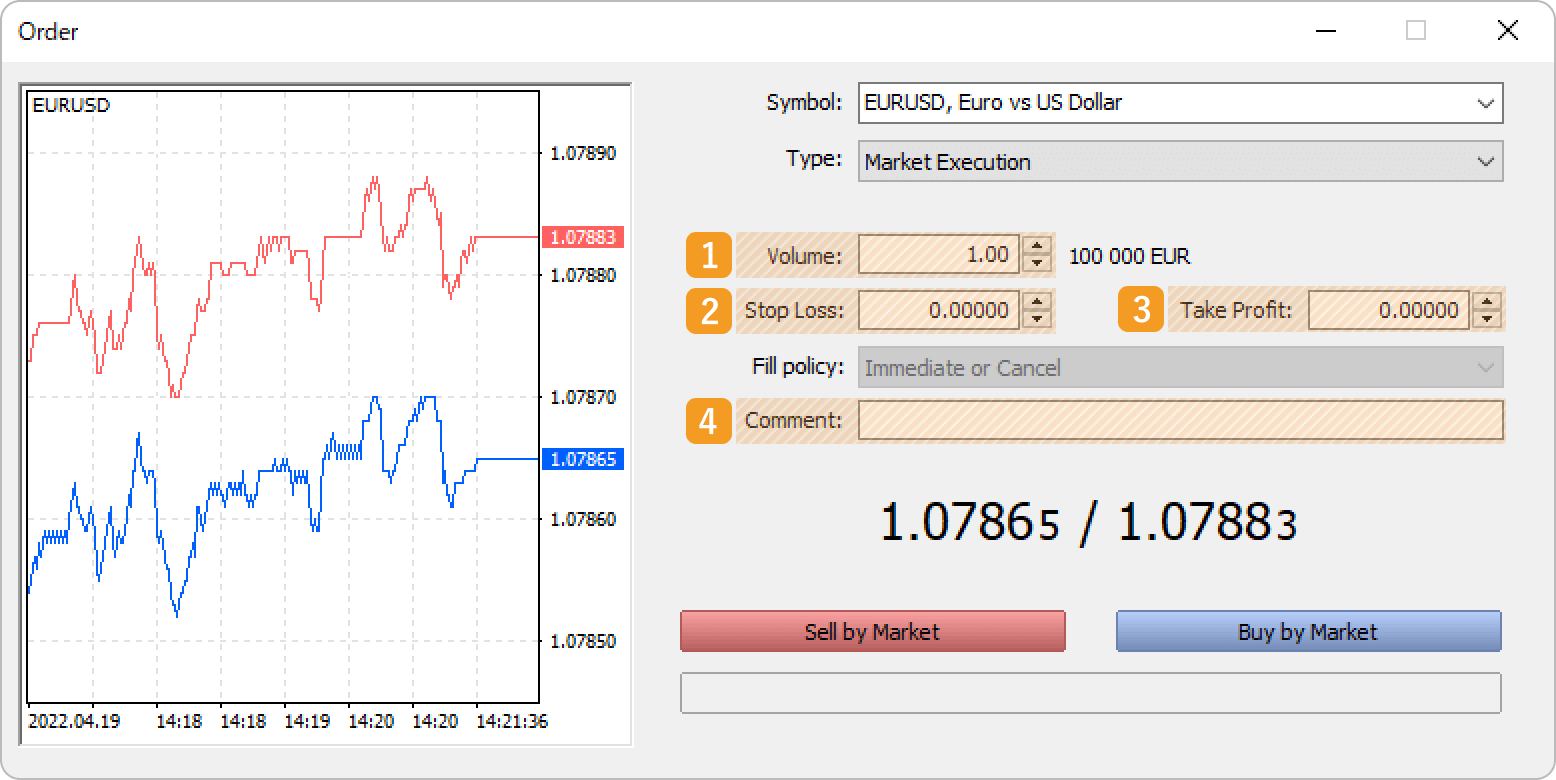
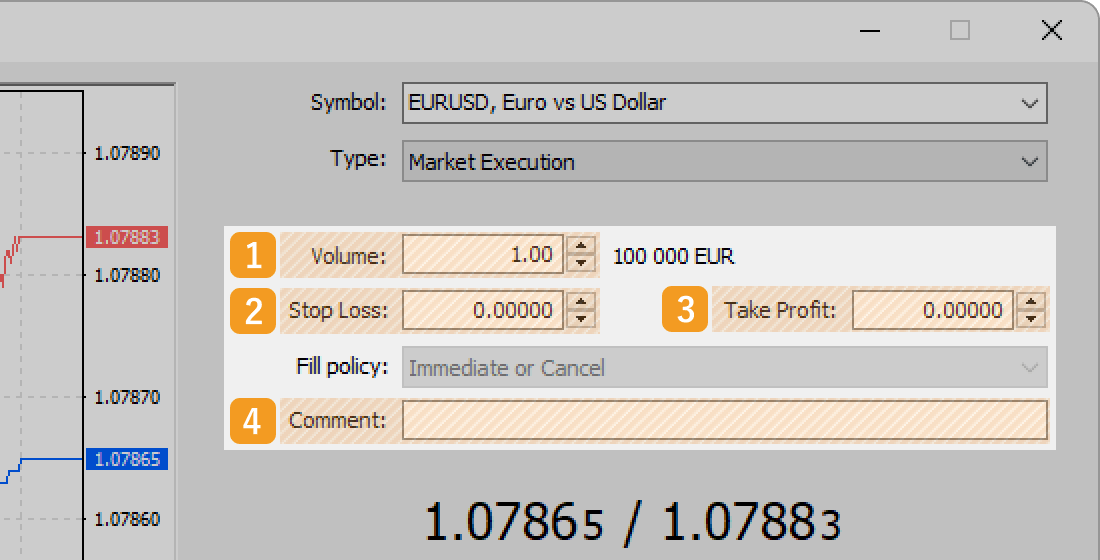
|
Number |
Item name |
Descriptions |
|---|---|---|
|
1 |
Volume |
Set the trade volume in lots. Type the volume or use the ▼▲ marks on the right side. |
|
2 |
Stop Loss |
Set the stop-loss (S/L) value. Type the price or use the ▼▲ marks on the right side. Related article: Set or change T/P and S/L values |
|
3 |
Take Profit |
Set the take-profit (T/P) value. Type the price or use the ▼▲ marks on the right side. Related article: Set or change T/P and S/L values |
|
4 |
Comment |
You can add comments to an order. Use them as notes for later reference. |
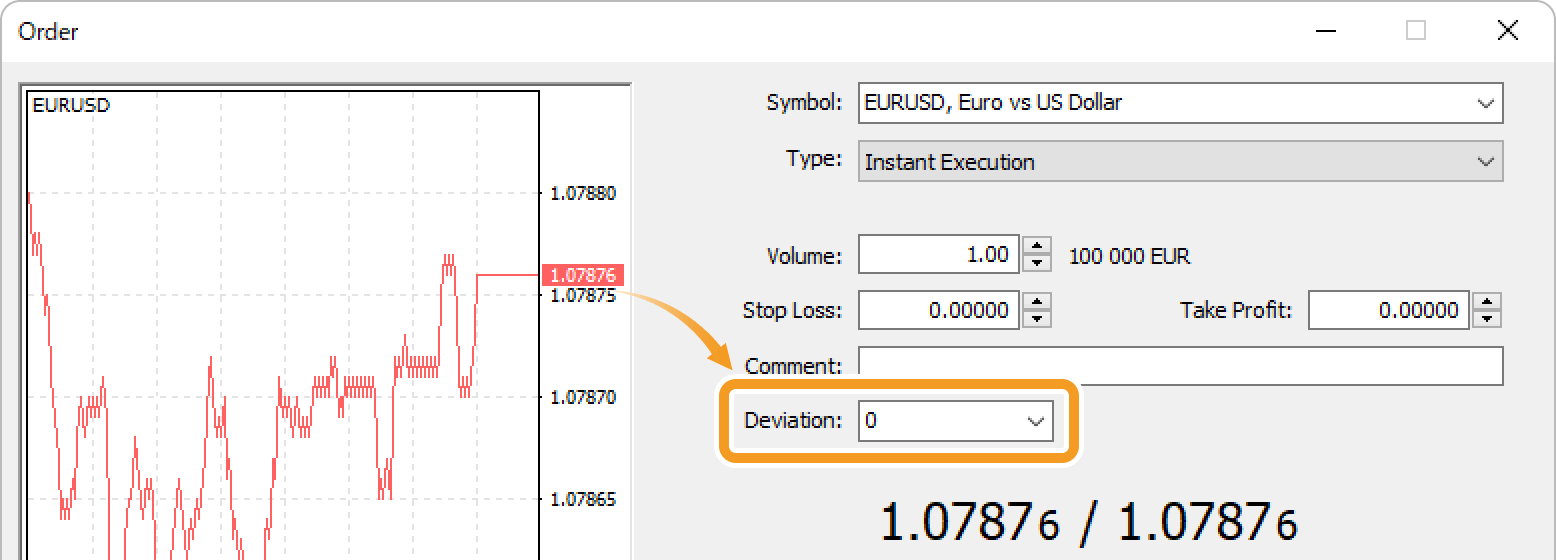
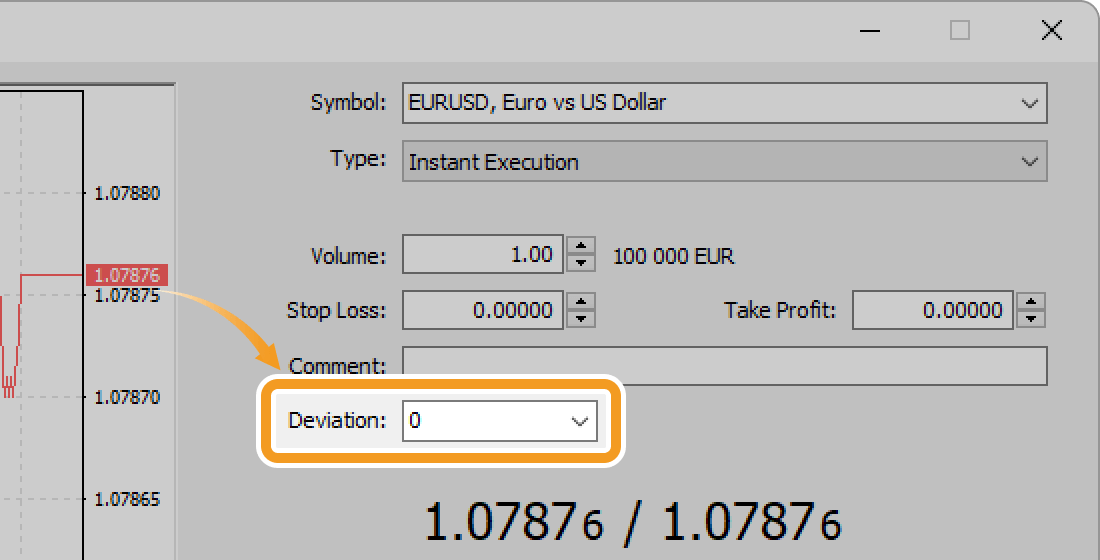
When placing an Instant Execution order, you can set the slippage tolerance value. If the slippage is greater than the preset threshold, the order won't be executed. In the Market Execution mode, the "Deviation" setting is not available.
Step 5
Check the price and click "Sell by Market" to place a market sell order or "Buy by Market" for a market buy order. The bid price will be applied for the former, and the ask price for the latter.
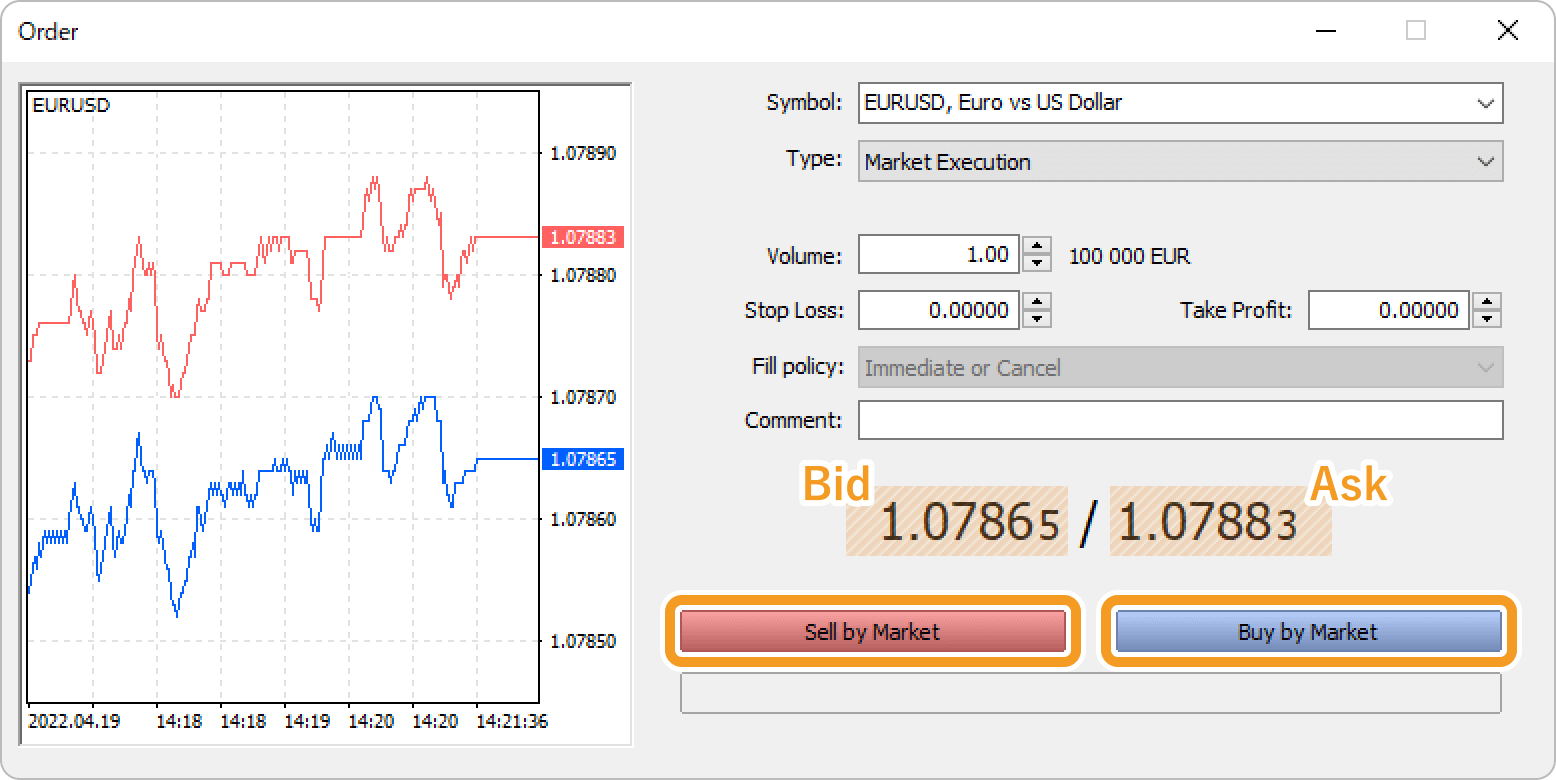
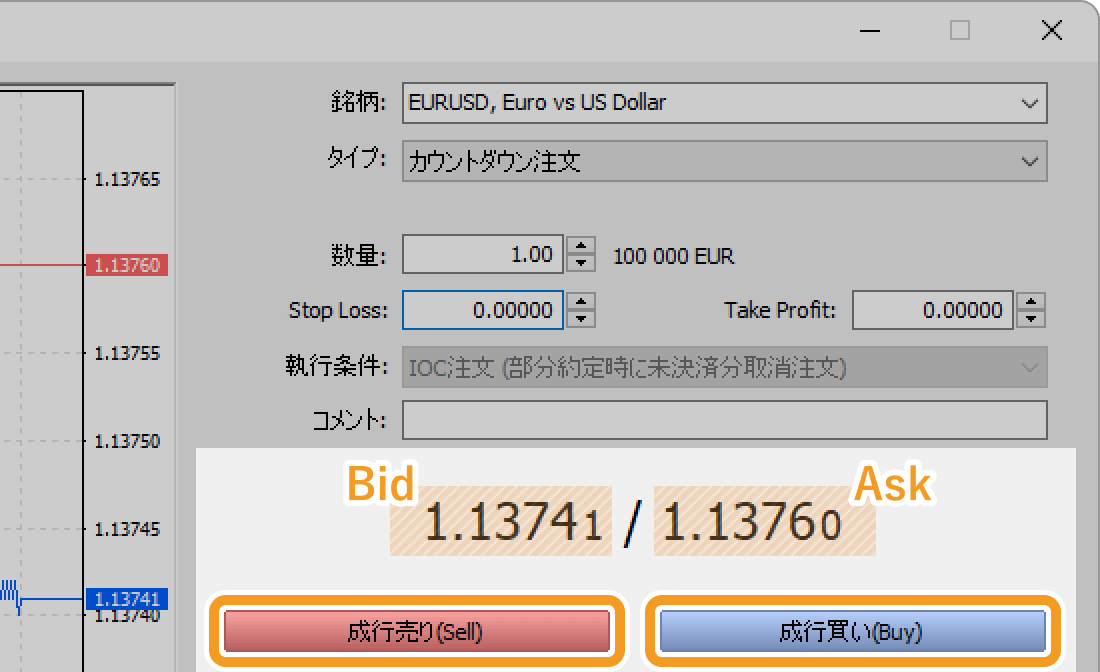
In MT5's new order window, you can check the tick chart. A tick is the smallest unit of data that represents price. Tick charts detect price movement faster than any other chart, which will help you execute well-timed orders. From the new order window's tick chart, you can check the Bid, Ask, take-profit (T/P), and stop-loss (S/L) values.
Step 6
Once the trade is executed, the order details will be added to the "Trade" tab of the Toolbox.
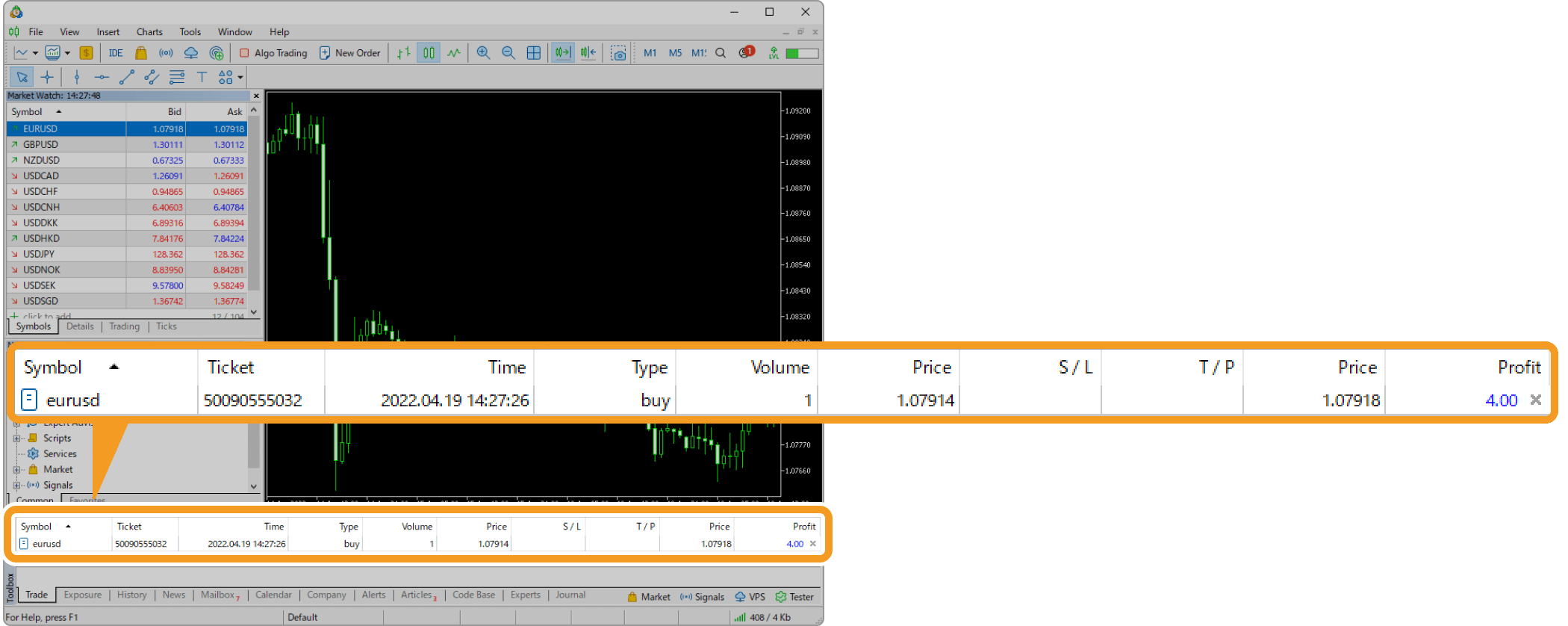
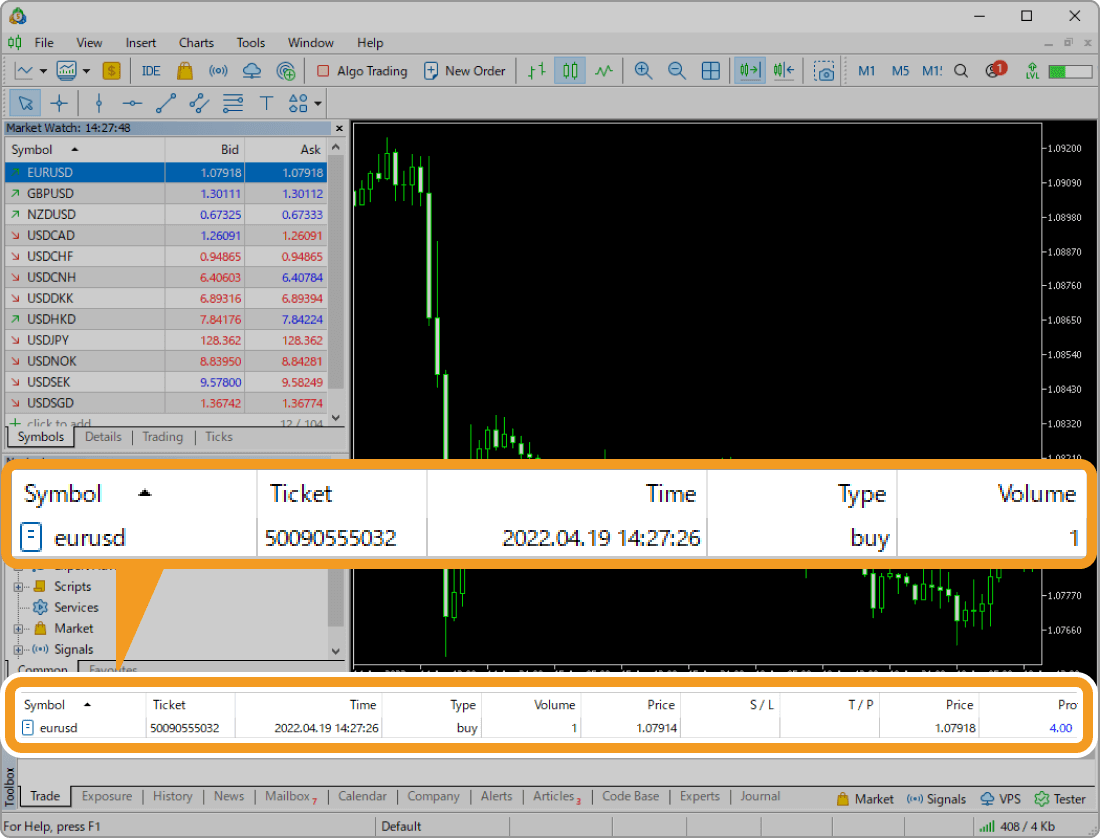
In case the Toolbox is not displayed below the charts, click "View" in the menu and select "Toolbox".
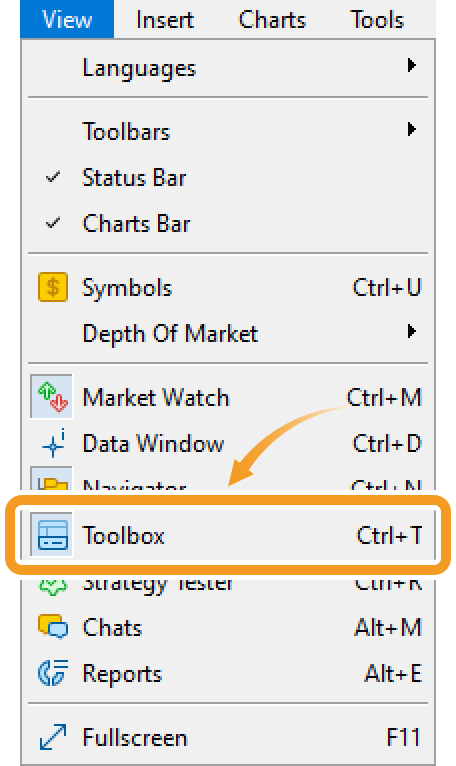
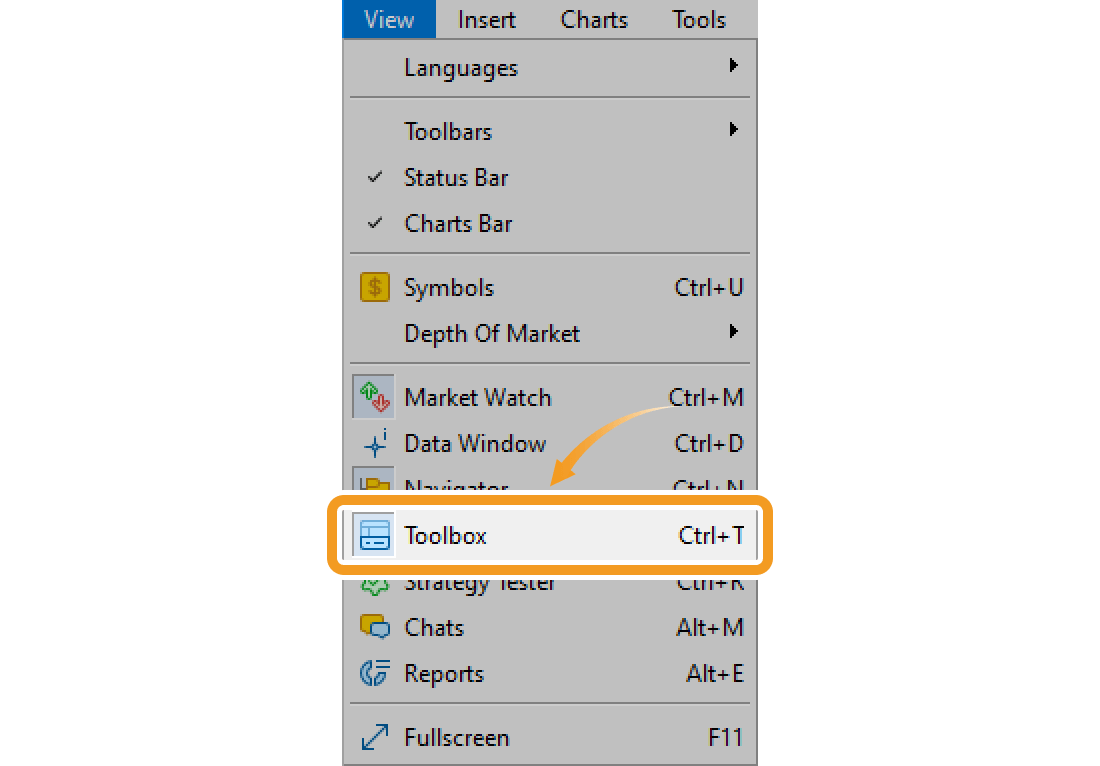
Was this article helpful?
0 out of 0 people found this article helpful.
Thank you for your feedback.
FXON uses cookies to enhance the functionality of the website and your experience on it. This website may also use cookies from third parties (advertisers, log analyzers, etc.) for the purpose of tracking your activities. Cookie Policy
